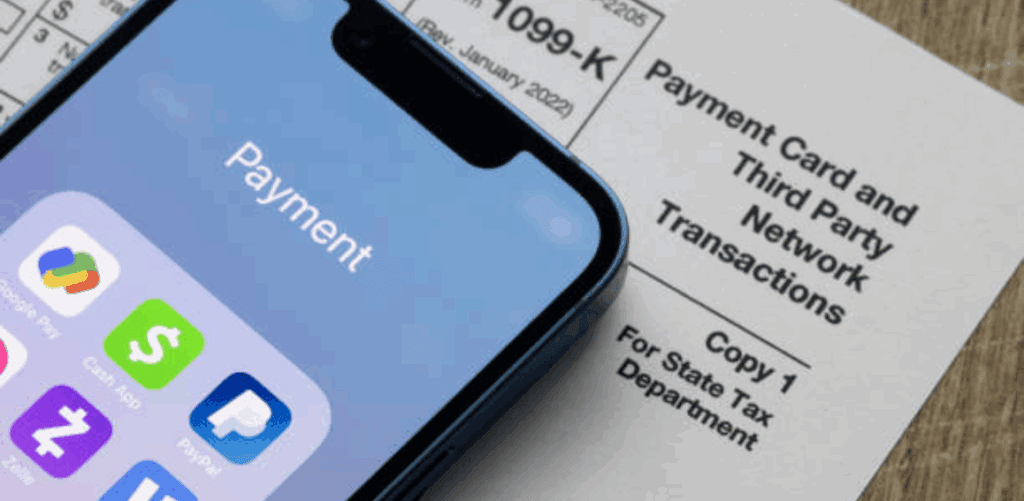
By American July 3, 2025
Cash App has broken into the mainstream in peer-to-peer payments, known for its simplicity and speed. It’s a popular early-stage go-to option for countless small businesses, given the ease of setup, lack of monthly fees and simple payment tools. But for businesses that expand or need more complex features, many owners realize Cash App doesn’t cut it in the long run. Hence, they look for Cash App alternatives.
It does not have key tools for scaling, lacks advanced reporting, multi-user access, automatic invoicing, and accounting software integration. Further, Cash App is not made for business compliance and could set off red flags with regulators if used for something more than casual transactions. Customer service is also a recurring hassle, especially in the case of transaction problems.
That’s why more and more businesses are discovering Cash App alternatives and payment processors that provide more control, more depth, and more customization with business features. In this post, we’ll cover the best alternatives and what makes them ideal for what type of businesses.
Why You Might Need Cash App Alternatives?
Here are a few reasons to look for Cash App alternatives:
Limited Buyer Protection
Cash App does not guarantee refunds if you’re the victim of a scam or fraudulently induced transfer. Payments, especially peer-to-peer transfers are typically final once you hit send. Cash App Card users can dispute transactions for certain reasons, such as duplicate charges, but the service offers far less purchase protection than other Fintechs.
Lack of Comprehensive FDIC Coverage
Unlike traditional banks, Cash App does not have automatic deposit insurance. Only users with specific features, like the Cash App Card, have partial FDIC protection. Without this protection, the money deposited in the app is more exposed in cases of technical complications, financial instability or bankruptcy. This uncertainty can be very disconcerting for businesses that deal with steady cash flow.
Potential for Data Breaches
Cash App has had issues with data privacy in the past, too, including an internal leak and unauthorized access. The events shine a light on questions of how user data is stored and safeguarded. Without this safeguard, any funds stored in the app are more vulnerable in the event of technical failures, financial issues, or bankruptcy. For businesses handling regular cash flow, this lack of assurance can be a serious concern.
Vulnerability to Account Hacking
If someone has access to your Cash App login, it can be difficult to regain control or recover lost funds. The platform is not immune to phishing, social engineering, or unauthorized access — especially without the use of two-factor authentication. That means the responsibility for security is shared between Cash App and the user, which isn’t the best situation for a business in search of a more solid security.
Top Cash App Alternatives for Businesses
If Cash App doesn’t meet your business needs, several alternatives offer more flexibility, compliance, and business-grade features. Each platform has unique strengths tailored to different business types—whether you’re invoicing clients, managing subscriptions, or accepting in-person payments.
1. PayPal for Business
PayPal remains a widely trusted platform for businesses of all sizes. It supports invoicing, checkout integration for e-commerce stores, and a suite of merchant services. Customers can pay using cards, PayPal balances, or even financing. This is one of the top Cash App alternatives.
Best for: Freelancers, online sellers, and service-based businesses that need robust invoicing and e-commerce tools.
2. Venmo for Business
Venmo is a user-friendly option with a social twist. It allows small vendors to receive quick payments while maintaining a personal connection with customers. However, it lacks advanced features like tax tools or invoicing.
Best for: Microbusinesses, hobby sellers, and vendors at local markets or pop-up events.
3. Zelle for Business
Zelle enables instant transfers directly between bank accounts, often within minutes. It’s fee-free and integrated with many banking apps. However, it doesn’t support buyer protection, nor does it offer business-specific tools like invoicing or reporting.
Best for: Solopreneurs or consultants who need fast, no-fee transfers and already manage finances through a bank.
4. Stripe
Next, on the list of Cash App alternatives is Stripe. Stripe is a powerful platform geared toward developers and digital businesses. It offers recurring billing, customizable checkout flows, and fraud prevention. While highly flexible, it can be complex to set up without technical help.
Best for: SaaS companies, startups, or online platforms needing subscriptions, API-based payments, or global reach.
5. Square Payments
Square provides an all-in-one payment ecosystem with POS hardware, mobile payments, inventory tracking, and detailed analytics. Its ecosystem is tightly integrated, making it easy for businesses to scale operations.
Best for: Brick-and-mortar retail stores, cafes, salons, and food trucks that rely on in-person transactions.
How to Select the Right Cash App Alternative for Your Business?
Choosing the best payment solution involves more than just brand names. It’s a question of matching platform features with your daily routines, customer life-cycle and long term growth. If you are looking for Cash App alternatives, then here are a few things to keep in mind:
Step 1 – Identify Your Core Payment Needs
Begin by thinking about how you gather and process payments. Is your company peer-to-peer, a B2C, or a B2B? Peer services may be suitable for small time sellers, however, increasing operation professionals require advanced features. Do you require a point-of-sale (POS) system for in-person, face-to-face payments, a checkout page for e-commerce transactions or both? And finally, are you in need of recurring billing, invoice management or client portals? The best solution should integrate with your payment flow and not require you to change that flow.
Step 2 – Compare Fees and Transaction Costs
Next, analyze the cost structure. Certain platforms may impose higher transaction fees for credit card and or lower fees when transferring funds via ACH or bank wire. Instant deposits often carry an additional fee. When evaluating which platform to choose, pay special attention to whether the platform has monthly subscription fees, per-transaction fees or hidden costs like refund fees or dispute fees. For high-volume businesses, tiny differences in fees can really add up in the long run.
Step 3 – Consider Integrations and Scalability
A great payment system should integrate with your other tools—such as accounting software, customer relationship management (CRM), or enterprise resource planning (ERP) systems—effortlessly. It saves you time and keeps you neat and organized. If you are looking to grow, find a solution that provides access to APIs, automation capabilities, and support for multiple users. You don’t want to outpace your payment platform too soon.
Step 4 – Evaluate Customer Support & Fraud Protection
When there’s money on the table, customer service is at stake. See if the platform provides live chat, phone or email support. You’re also likely interested in how it deals with disputes, chargebacks and fraud. On some platforms, there are automated suspicious activity detectors, and others have teams dedicated to payment problems. Billing glitches and scam payment requests do happen, and in times like that, having quick and consistent help can really make a difference.
Step 5 – Review Security & Compliance
Ensure the platform is PCI DSS compliant, data is encrypted and it follows Know Your Customer (KYC) and Anti-Money Laundering (AML) regulations. These are particularly key for financial, healthcare, and other regulated industries. Because robust security protects not only your customers but also your reputation.
Conclusion
There’s no one-size-fits-all payment platform, especially when your business has unique needs. While Cash App works for basic peer-to-peer payments, it may fall short as your business grows or needs more structure. The best alternative depends on your transaction volume, customer type (B2C, B2B), and preferred tools like POS systems, invoicing, or recurring billing. Some businesses even benefit from using 2–3 platforms—like pairing Stripe for online payments with Square for in-person sales. Flexibility matters more than loyalty to a single app. Choose what aligns best with your operations and goals.
Frequently Asked Questions
- Is Cash App suitable for business use?
Cash App can work for small, informal sales but lacks advanced features and buyer protection for serious business use. - Which Cash App alternative is best for online stores?
Stripe and PayPal are great options for online stores with strong checkout and invoicing tools. - Can I use multiple payment platforms for one business?
Yes. Many businesses use a mix—like Square for POS and PayPal for invoicing—to cover different needs. - What’s the safest alternative to Cash App?
Platforms with strong compliance and fraud tools—like Stripe or PayPal—are more secure for handling business transactions. - Do Cash App alternatives support recurring billing?
Yes. Stripe and PayPal offer robust support for subscriptions and automated recurring payments.




